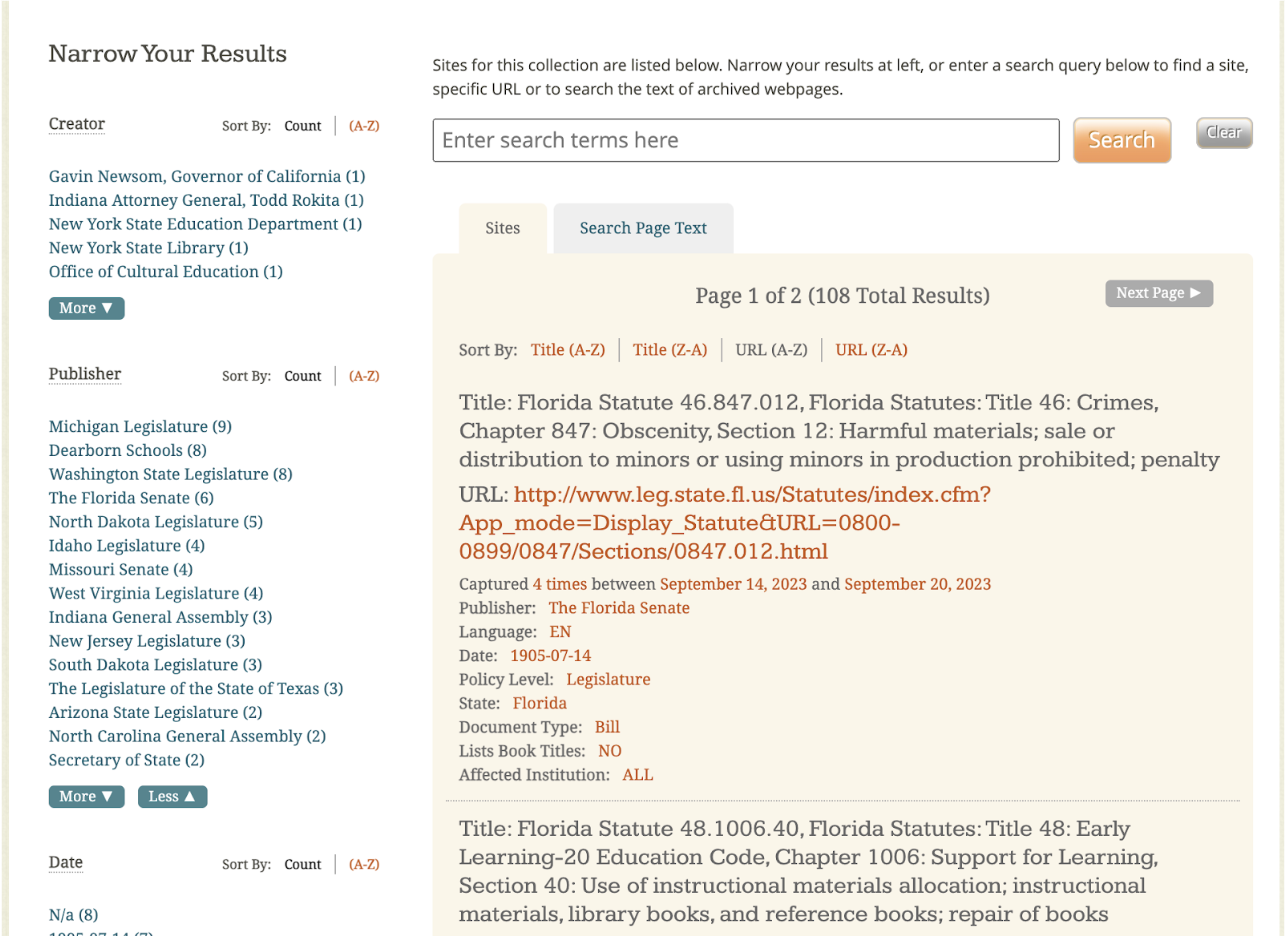In response to the rise in book challenges in Michigan and across the country, a new web archive has been created to preserve, to the best of our ability, information regarding attempts to change collection development policies in public schools and public libraries.
Overview of Collection Goals
The State Policies on Book Challenges in Schools and Libraries web collection is curated in conjunction with the Diversity in Children’s Literature web collection.
While the Diversity in Children’s Literature collection is concerned with capturing the “growing awareness of the importance of diversity in children’s literature among authors, publishers, librarians, and readers,” State Policies on Book Challenges in Schools and Libraries examines the often “lost” or “hidden” documentation behind book challenges and bans in schools and libraries.
We hope that these two collections supplement each other and that State Policies on Book Challenges in Schools and Libraries will allow users of the collections to see how socio-political movements and changes continue to impact diversity and inclusion within children’s literature and education.
About the Collection
Proposed by librarians Catherine Morse and Jo Angela Oehrli of the University of Michigan Library, the State Policies on Book Challenges in Schools and Libraries collection is an ongoing project that aims to pull policies from all states, with particular emphasis placed on collecting both policies and contextual sources for the state of Michigan. As a depository for the State of Michigan and as a library that serves academic programs that train teachers, librarians and archivists, the University of Michigan Library is committed to building research collections that preserve our state's education history.
After a series of book challenges that took place around 2020 in Florida, both librarians became interested in how these challenges would be recorded. More specifically, they thought about how collected resources could be used by future researchers to think about the history of censorship in education and what this means for the incorporation of differing world views and histories in our schools.
This project centers publicly available sites and the conversations around book challenges present on these sites. Collected materials currently consist of proposed bills, past legislation referred to in challenges, school board meeting minutes, school or district-level policies, press releases, and other related documentation. While collected materials may touch on other institutions such as commercial entities, universities and colleges, and cultural institutions such as museums, the majority of the materials concern public schools and public libraries. (See “The Process” for more information on these collection choices and practices.)

Current iteration of our publicly available collection in Archive-It
The Process
Figuring out how to scope such a collection and getting to the root of what we really wanted proved to be difficult.
We began our scoping processes by assessing collections and censorship guides from other institutions in order to find a missing angle. For our team, it was crucial to not rehash the work of other organizations but rather to add to the conversation.
During a preliminary search of this topic, we found that other archiving institutions tended to focus on the following angles:
- Historical/government acts of censorship
- Acts of censorship during and prior to the 1950s
- Archived articles or discussions of censorship produced by the archiving institution
There were no archives of book bans and challenges as they related schools and education.
Confident that the angle we were taking had not been done before, we conducted a general search on book challenges and bans, where we gathered any relevant sources we found interesting. These sources ranged from blogs to social media posts to databases and school meeting minutes. We made a list of the topics that most of these sources fell into, and then sorted them thematically, allowing us to more easily choose an angle.
At the end of this process, we decided to combine two of these themes, deciding to focus on the role of government and other public entities in these events and their impact on law-making decisions. This decision was due in part to the ephemerality of certain government documents, such as introduced bills which are usually not as carefully saved or viewable to future generations. On the other hand, we were also constrained by copyright and intellectual property laws.
Government documents, readily open to the public, can be archived without express permission. This was not an option for other resources, such as blogs and news articles, which are owned by private entities. As a result, we focused our attention on government documentation and other publicly open resources, such as school board meetings, which can often give deeper insight.
The Future of the Collection
The development of the collection is still in progress as of the publishing of this post. Currently, the collection contains over 100 records and is viewable here.
Our team is currently working on adding more content to the collection and creating metadata that not only accurately describes the content but also makes searching through Archive-It’s interface more researcher-friendly.